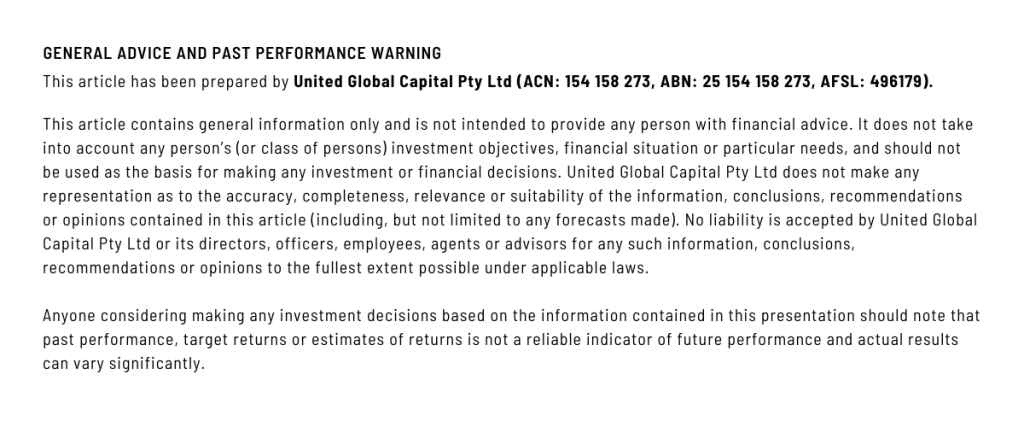Investing Basics You Need To Know
Investing holds the key to unlocking financial growth, stability, and independence. Whether you’re new to the world of investing or seeking to refine your strategies, understanding the basics is crucial.

What is a Stock?
The fundamental distinction between a public and private company lies in their ownership structure. Private companies are typically owned by a select group of individuals, such as the founders or management team, while public companies have sold shares of ownership to the general public. As a result, members of the public can invest in a public company by purchasing shares, effectively obtaining a fractional ownership stake in the business.
The sale of shares is typically conducted through a stock exchange, such as the Australian Stock Exchange or the New York Stock Exchange, and is used by companies to raise capital for growth and expansion.
There are two primary types of stocks available for purchase: ordinary shares and preference shares. Ordinary shares typically grant the shareholder voting rights at shareholders’ meetings and the right to receive dividends from the company. On the other hand, preference shares do not come with voting rights, but they have priority over dividends and assets in case of company bankruptcy.
Why would you want to own a company’s stock?
- Potential growth in the business.
- The companies vision aligns with your values.
- Create long-term wealth.
What is an Exchange-traded fund (ETF)?
An exchange-traded fund (ETF) is a type of investment vehicle that comprises a basket of individual securities, similar in nature to a traditional managed fund.
However, ETFs are traded on stock exchanges like any other security, thereby providing investors with the ability to purchase a diverse range of underlying assets through a single investment vehicle. This approach allows investors to gain exposure to a broad range of markets and asset classes, without the need to purchase individual securities.
ETFs come in various forms, including those that track the performance of a specific index, commodity, industry, or asset class, making them a popular choice for diversifying investment portfolios.
Types of ETF:
Index – designed to track a particular index such as S&P 500, NASDAQ 100 or ASX 200.
Commodity – Designed to track the price of commodity such as Gold, Oil or wheat.
Actively Managed – Designed to outperform an index which it tracks.
Industry – Designed to provide exposure to a particular industry, such as agriculture, semiconductors, cyber security or telecommunication.
Inverse – Designed to profit from a decline in the value of the underlying benchmark.
4 Bad Habits of a Naughty Investor
Chasing Past Performance
Investing more in what has recently done well is a recipe for missing out on what is about to do well. “Don’t put all your eggs in one basket” is a classic investing adage, but it’s even more important when it comes to chasing past performance. Just because a stock had the best returns last year, doesn’t mean it’s going to win the race again. Instead of being a bandwagon investor, be a trendsetter and look for what is going to be the next leader.
Timing the Market
Timing the market is like trying to catch a falling knife. It’s dangerous and often leads to bleeding money. Famous investor Peter Lynch puts it best, “Far more money has been lost by investors trying to anticipate corrections, than lost in the corrections themselves.”
High Fees
Another pitfall to avoid is paying high fees. There are plenty of investment products out there, and many have the same performance but with higher costs. Don’t let your gains be eaten up by unnecessary expenses.
Thinking Short Term
Lastly, it’s important to think long-term when it comes to investing. Trying to get rich quick is a sure-fire way to stay broke. Investing is like a marathon, not a sprint.
Investing and the value of time
Investing is the act of allocating capital towards the acquisition of assets with the aim of realising an increase in value over time. This can take many forms, including the purchase of stocks, bonds, real estate, and alternative investments such as cryptocurrency.
For example, you purchase $1,000 worth of Apple Shares. If Apple’s share price increase by 20% then your investment is now worth $1,200.
Be Patient and Think Long-Term
The power of compound growth is a key aspect of investing, as the returns on an investment are reinvested to generate additional returns in the future. This is why time is such a critical factor in investing, as the longer an investment is held, the more opportunity there is for compound growth to take effect.
This concept is demonstrated by the hypothetical scenario of Mark and Matthew, both of whom invested in an index fund with an 8% annual return. Mark began investing at age 25 and continued for 10 years, while Matthew began investing at age 35 and continued for 30 years. By the time they reach age 65, Mark’s investment has grown to over $900,000, while Matthew’s has grown to just over $700,000.
It is important to note that past performance is not indicative of future performance, and investing always carries a level of risk. However, the power of compound growth and the importance of starting early are both key concepts to consider when planning an investment strategy.
Reasons to start investing
Investing is often perceived as a pursuit reserved for the wealthy, but in reality, it is a viable option for individuals of all income levels. The key to successful investing is to start early and remain consistent, even with small amounts of capital.
Inflation is killing the value of your money
One of the primary reasons to consider investing is to combat the effects of inflation. Inflation is the general increase in prices and decrease in the purchasing power of money. Over time, inflation erodes the value of cash savings, making it difficult to achieve financial goals. Investing in assets that have the potential to appreciate in value, such as stocks or real estate, can help to offset the impact of inflation on your wealth.
Financial Independence
The traditional retirement age of 65 is becoming increasingly unrealistic, as the cost of living continues to rise and student loan debt becomes a growing concern. By investing early and consistently, individuals can increase their wealth and potentially retire earlier, providing them with more time to enjoy their lives and pursue other interests.
Making money work for you
In addition, investing allows you to make your money work for you, rather than the other way around. By taking control of your finances and investing your money, you can improve your financial stability, increase your wealth and potentially generate a passive income stream through dividends, interest payments or rental income. This not only improves your overall financial security but also provides you with more freedom and choice in your life.
If you are interested in discussing different investing options suitable to you, please feel free to contact us today.

